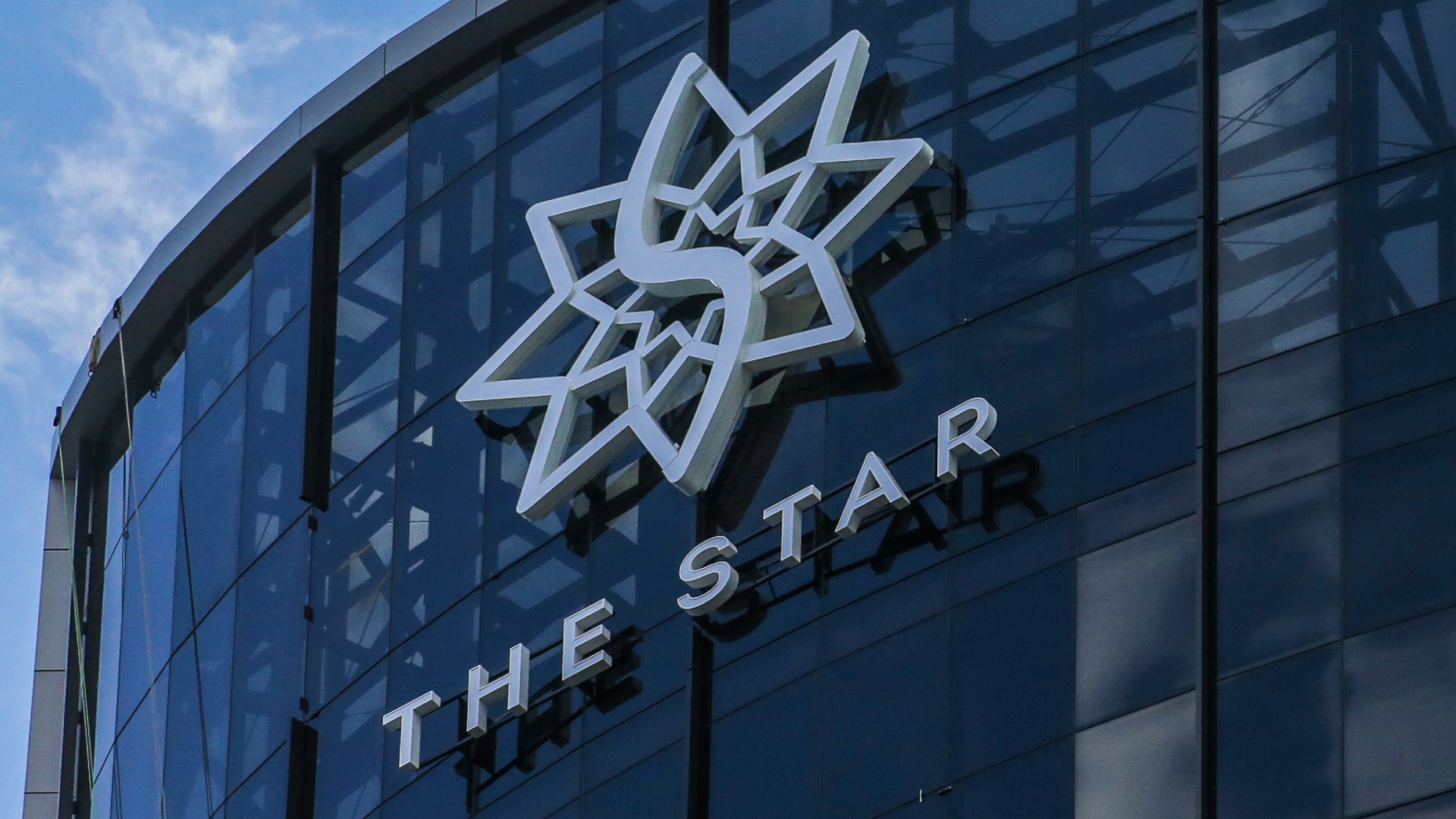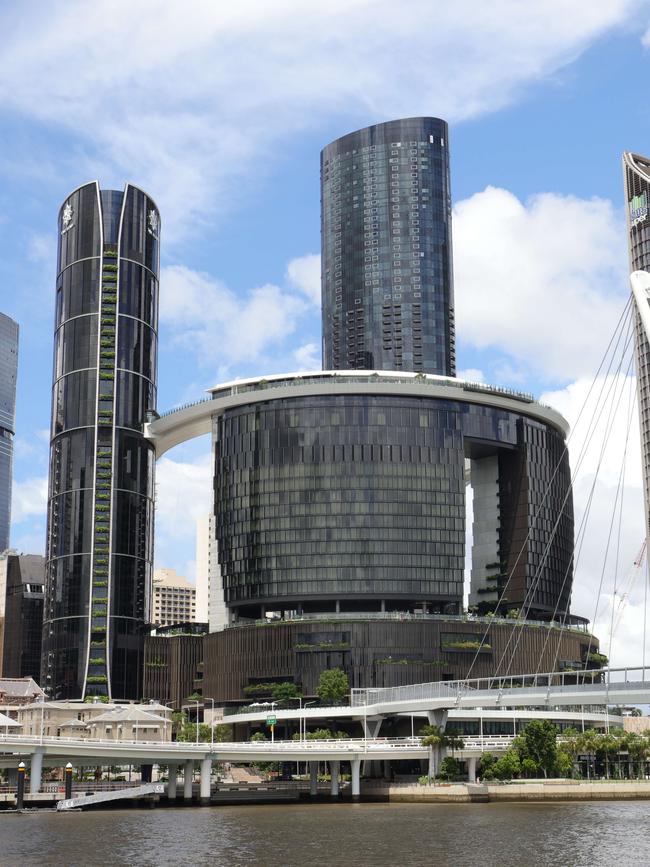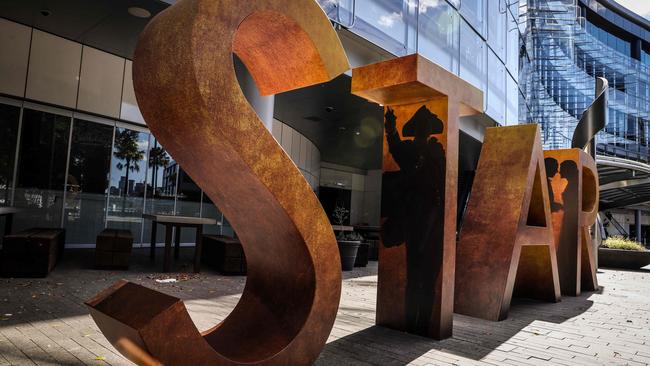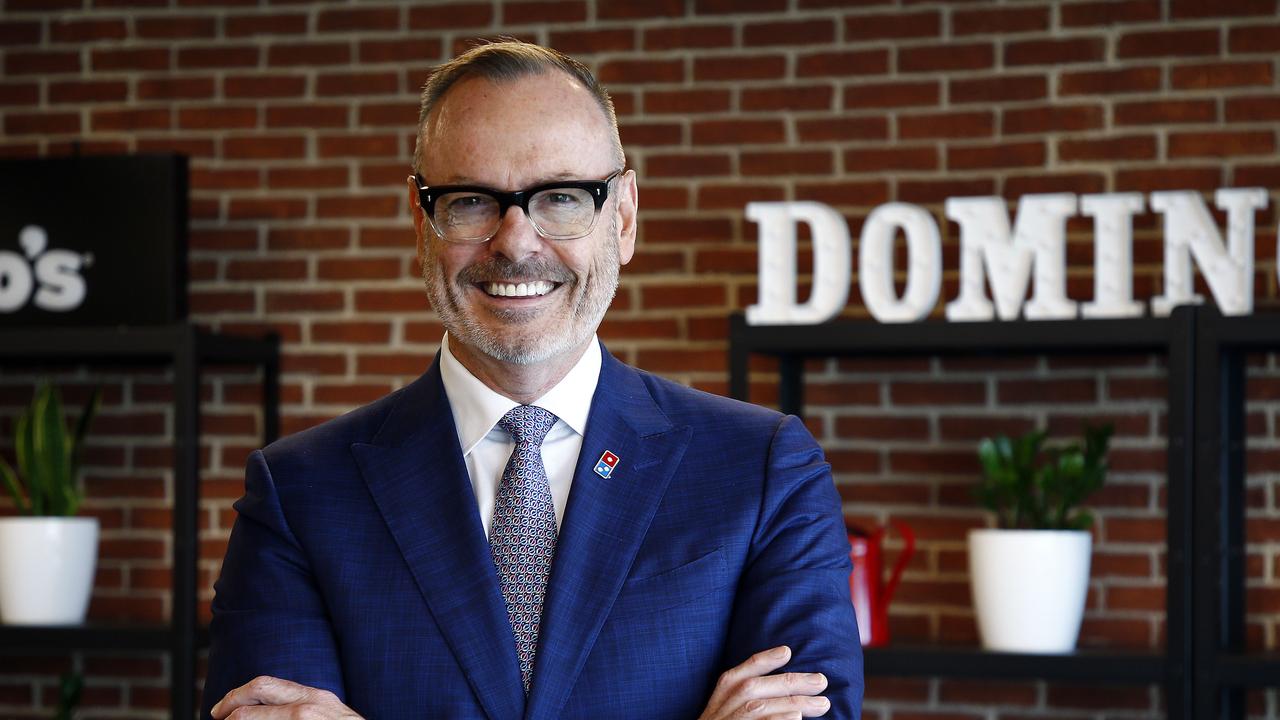Casino group Star in a death spiral and a break-up appears imminent
Troubled casino operator Star Entertainment will be lucky to survive until the end of February without a financial lifeline, Morningstar says. So how did it get to this?

Business
Don't miss out on the headlines from Business. Followed categories will be added to My News.
Star Entertainment’s brand new $3.6bn Queen’s Wharf precinct in Brisbane was doing a solid trade on Friday despite dire warnings the casino operator is on the brink of collapse.
The up-market Pompette Champagne Bar & Restaurant and Italian trattoria Cucina Regina overlooking the Brisbane River had a good smattering of customers, while on the casino floor a solid contingent of punters were trying their luck.
In his first public comments on the crisis engulfing the company this week, Star chief executive Steve McCann said the priority was working with all of its stakeholders to “try to deliver a viable outcome for the business”.
“The focus is on saving jobs and providing a sustainable future for our 9000 hardworking team members,” Mr McCann said. The company’s shares slumped more than 40 per cent over two days this week as it warned it had burnt through more than $100m in cash in three months.
Staff at Queen’s Wharf said they had heard about the company’s financial troubles, but were not overly concerned. “They are still paying us,” one said.
There are now growing warnings that the company will be lucky to survive until the end of February without a financial lifeline, and administrators may need to be appointed.
With Star fast running out of cash, there are three big issues the board, led by former National Australia Bank lead counsel Anne Ward, is grappling with as it tries to salvage a survival plan. The first is a refinancing of the company’s balance sheet as it struggles to meet the conditions needed to unlock the second $100m tranche of its debt facility.
This includes raising $150m in subordinated debt. UBS has been working since September to secure support for the debt, but the risks involved mean investors have shunned the offer. At the same time, the collapse in the share price has made an equity raising too expensive.
The second issue is the monster $1.6bn refinancing of Queen’s Wharf, which is sitting with a separate consortium of lenders.
If Star can’t refinance the joint venture, its partners Chow Tai Fook and Far East Consortium are likely to step in and dilute Star’s equity holding to zero.
The pair each own 25 per cent of the project. Star owns 50 per cent, and the casino licence. Mr McCann has met with both in Hong Kong in recent months.
The third issue is the regulatory environment that is undermining the business model. The move to cashless gaming in casinos in NSW has triggered a collapse in revenue.
In addition, Star’s pokies now have $5000 daily limits that fall to $1000 later this year. The rules do not apply to pubs and clubs, which Star executives have repeatedly told the NSW government is creating an uneven playing field. Some 70 per cent of Star’s revenue is generated from pokies. Star’s own internal figures showed revenue was down more than 15 per cent in the weeks that carded play became mandatory.

“When it comes to refinancing, each of those issues alone are as ugly that anyone in corporate Australia has had to deal with for a decade,” one adviser close to the Star board said.
“Bankers normally like complexity and like difficulty because they can charge what they like, but in this situation they will be reluctant to make it work. Everything is so precarious, there’s not even the money to pay some of the eye-watering fees to make it all stack up.”
Star’s main lending syndicate is led by Macquarie and Deutsche Bank and includes Westpac, UK bank Barclays, Soul Patts, Regal, and Hong Kong-based Asia Research and Capital Management. The Weekend Australian revealed in September that restructuring firm McGrath Nicol had been advising lenders about the health of the casino operator.
While there are asset sales under way, including the Sydney hotel, this may not be enough to raise the cash needed to fix the balance sheet.
The Star board is understood to have held meetings through the critical Christmas and New Year’s period to monitor the cash situation.
They continue to meet, taking advice from lawyers and bankers. At each meeting, they have to be satisfied that the casino can continue to pay its debts in the coming 12 months. The complexities mean it is becoming a less than clear-cut answer every time.
While a voluntary administration would largely release the directors of any further responsibility that immediately puts in doubt the fate of the casino’s thousands of staff as well as tenants and suppliers, it also is expected to deliver a shock to the Sydney and Brisbane tourism markets.
Morningstar analyst Angus Hewitt said that, at Star’s current cash burn rate, Star would be lucky to make it to its interim results scheduled for February 28.
“We now incorporate a 50 per cent probability that Star falls into administration, and equity holders are wiped out,” Mr Hewitt said. “The cash burn is worse than the market expected.”
Star warned earlier this week it had burned through more than $100m of its dwindling cash reserves in just three months, leaving it less than two months of reserves without a top-up.

Star said its available cash at the end of December had dropped 46 per cent to $79m – a reduction of $70m – from the previously reported position at September 30.
Analysts such as Morningside’s Mr Hewitt believe Star is now in its death throes. “Star needs an immediate solution, and we believe it is unlikely it can trade itself out of this predicament,” Mr Hewitt said.
Even pubs billionaire Bruce Mathieson, the biggest shareholder in Star who previously talked up the prospects of Mr McCann saving the business, was downbeat.
Mr Mathieson said on Thursday that Star would either “go bankrupt or be bought” unless it could improve its finances in the coming months.
Mr Mathieson spent more than $270m accumulating his stake of 275 million shares in the casino group, kicking it all off with a $141.7m investment in March 2023 at an average price of almost $1.50 a share. His punt on the company has cost him about $240m, with Star shares hitting a record low of 10c on Friday, valuing Mr Mathieson’s holding at $27.5m.
The stock closed down 2c or 15.4 per cent, at 11c on Friday as investors rushed for the exit, with 163 million shares changing hands. In two days, Star shares have almost halved in price, with 320 million traded, leaving the embattled casino group with a market value of just $315m.
One possible scenario in a break-up of the company would see Mr Mathieson pick up the Gold Coast property, with Blackstone, owner of rival Crown Resorts, taking Star Sydney. Malaysian gaming giant Genting has been mooted as a possible buyer of Queen’s Wharf.
The company has already accessed half of a $200m financial lifeline put together late last year but there are growing doubts it can obtain the rest.
Mr Mathieson, whose family company owns 9.59 per cent of Star, said he would not be interested in putting any more money into the company until its financial future was clearer. He said the biggest issue remained a looming fine from Austrac for breaches of counter-terrorism and anti-money laundering laws, for which Star had provisioned $150m.
Morningstar says that fine could be as much as $330m, including payment terms.
With the current cash burn, Star could be forced into administration as early as next week, sparking a wholesale fire sale of its lucrative assets. Hopes for a government bailout from either NSW or Queensland appear to have evaporated despite concerns that what could be the biggest corporate collapse since the failure of Virgin Australia would throw thousands of people out of work.

NSW Premier Chris Minns this week hosed down any suggestion his government would provide financial assistance to Star.
Last year, the NSW government and Star signed a deal under which the company would keep a guaranteed number of employees in return for revised tax rates.
“The short answer is [we will provide] nothing beyond the agreement we signed with them last year, which was for a jobs guarantee,” Mr Minns said.
“We have done our bit so we don’t have anything to add other than it needs to be run on commercial grounds and that’s a matter for Star, their ownership and their management.”
Queensland Premier David Crisafulli refused to be drawn on whether his government would offer Star a financial lifeline, but committed to stepping in to keep Queen’s Wharf open if necessary.
“Our focus is on the men and women who work there, not casino giants … and the support that we give and everything we do will be about the people employed there,” Mr Crisafulli said.
Pushed about the possibility of a financial rescue package, Mr Crisafulli said: “Our focus is on the workers, not on Star”.
“So if you’re asking me whether or not I think it’s a good use of taxpayers money to prop up individual companies, I would suggest to you the focus should be on individual workers,” he said.
Asked to explain how the government would support Queen’s Wharf workers, Mr Crisafulli said “by making sure that as part of any future continuity, that the place stays open”.
“That is something we can certainly help with and send those signals to the market,” he said.
The previous Labor government refused to offer any deferral of tax payments unless Star guaranteed it would not pay performance bonuses to its executives.
additional reporting Lydia Lynch
More Coverage
Originally published as Casino group Star in a death spiral and a break-up appears imminent




